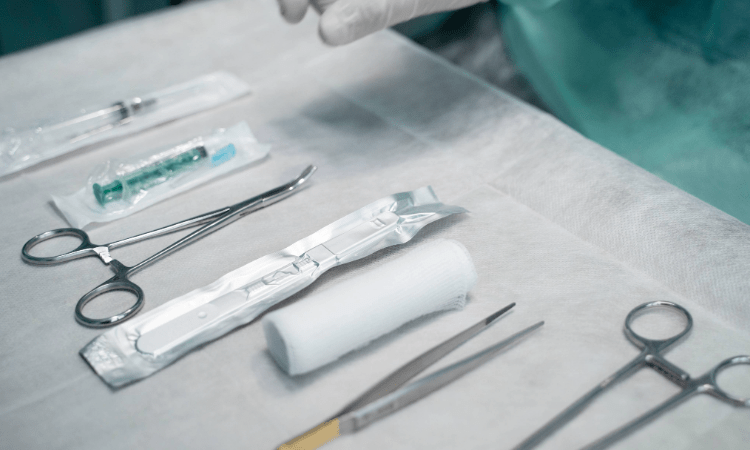
BLOG
KATEGORİDEKİ DİĞER YAZILAR

Medical device packaging is specifically designed to maintain the sterility and safety of the product. These packages must be able to remain unopened for long periods of time and protect the products from external influences. Adhesion strength testing of packaging materials plays a critical role in evaluating the durability and functionality of these materials. In this article, we will examine the adhesion strength tests and the importance of these tests in accordance with ASTM F88/F88M and EN 868-5 standards.
Adhesion strength is a test that measures how well the sealing lines of a package withstand an applied force. In medical device packaging, it is especially critical for the sterility and safety of the product. This test assesses the opening resistance of packaging, ensuring that it provides a reliable opening for users and does not compromise the sterility of the product.
ASTM F88/F88M is a common standard used for adhesion strength testing of medical device packaging. This standard evaluates the opening performance of a package by measuring the resistance of the seal line to a given force.
Test Application: The tensile force applied to the sealing points of the package and the opening speed are measured to determine whether the package meets the required durability. The ASTM F88/F88M standard evaluates the adhesion strength by observing the behavior of the tested packages during the opening or rupture process.
Adhesion strength testing is important to ensure that the package remains sterile for a long period of time and provides a safe opening experience for users. In addition, these tests determine whether the packaging can withstand external stresses during transportation, storage and use.
To ensure the durability and safety of medical device packaging, adhesion strength tests must be performed in accordance with ASTM F88/F88M and EN 868-5 standards. These standards play a critical role in maintaining the sterility of products and ensuring user safety. Adhesion strength tests are an important step towards ensuring patient safety, ensuring that the packaging of medical devices remains sterile and durable.
EN 868-5 is a European standard that applies specifically to sterile packaging for medical devices. It defines specific requirements to ensure that the packaging maintains the durability and functionality to remain sterile.
The adhesion strength tests recommended by these two standards generally include the following steps:
Nanolab offers the most reliable and fastest solution for adhesion testing of packaging materials with its experience in the industry and strong infrastructure. It tests the adhesion strength of packaging materials in full compliance with ASTM F88/F88M and EN 868-5 standards. Thanks to ISO 17025 accreditation, analysis results are internationally recognized and material quality and reliability are accurately assessed. With its wide range of equipment and expert technical team, it completes testing processes effectively and quickly. Thanks to its regulatory expertise, the relevant standards and legal requirements are fully met. Nanolab stands out as the address where quality, reliability and speed combine in packaging materials adhesion tests.
Contact us for more information.
Follow us on LinkedIn for up-to-date news and posts about our services.
Follow our Instagram account to be informed about our latest blog posts.